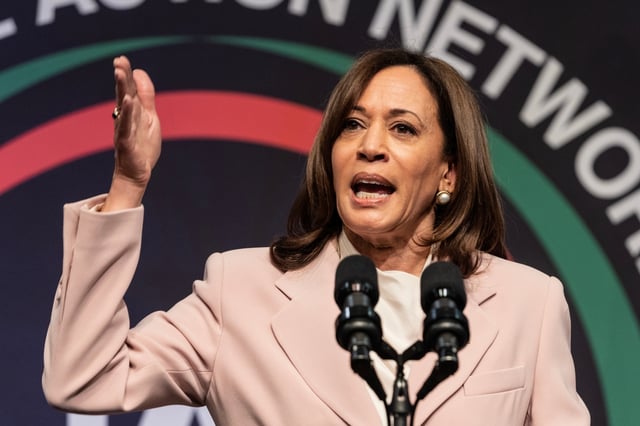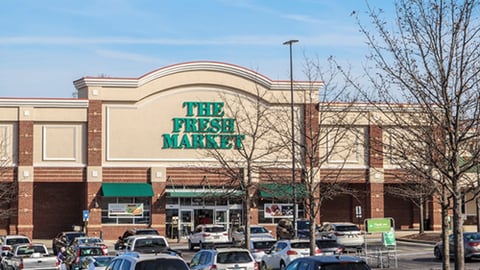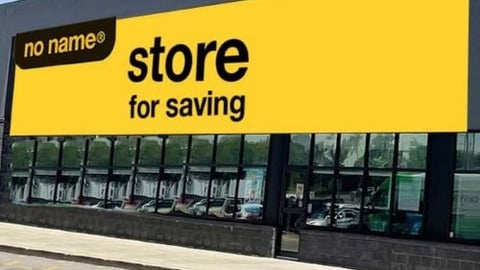THE FRIDAY 5: Food Industry Responds to ‘Price Gouging’ Rhetoric; Kroger Sues the FTC
Welcome to The Friday 5, Progressive Grocer’s weekly roundup of the top news and trends in the food retail industry. Each Friday, we’ll take a look at the stories that are most important to our readers and also keep tabs on the trends that are poised to impact grocers.
1. Harris Campaign Moves to Address Grocery Prices
If elected president this November, Vice President Kamala Harris plans to propose a first-of-its-kind ban on “price gouging” in the food and grocery industry. In a statement, Harris’s campaign said her proposal would include “clear rules of the road to make clear that big corporations can’t unfairly exploit consumers to run up excessive corporate profits on food and groceries.”
In response to the proposed move, FMI – The Food Industry Association released a statement from its President Leslie G. Sarasin stressing that inflation, not price gouging, has caused price increases among consumer goods. Sarasin also shared that conversations about food prices should “remain grounded in reality and data, rather than rhetoric.”
"It is both inaccurate and irresponsible to conflate an illegal activity like price gouging – a defined legal term in which specific violations of trade practices law occur − with inflation, which is a broad, macroeconomic measure of increases in consumer prices over time due to supply chain cost pressures,” Sarasin said. “In the context of food, inflation impacts how far the dollar goes when buying groceries.”
Continued Sarasin: “Americans should feel confident that the food industry has zero tolerance for deceptive practices like price gouging, an illegal activity that has no place in our stores and is inconsistent with the way the food industry conducts its business of feeding American families."
National Grocers Association CEO and President Greg Ferrara, meanwhile, believes Harris's proposal calling for a ban on grocery price gouging is a solution in search of a problem, and hopes that the new administration will "look closely at anticompetitive behaviors, including price discrimination, that are increasing prices for independent grocers and the community members they serve.”
In addition to moves against price gouging, Harris plans to more closely scrutinize mergers and acquisitions between large food producers and grocers, “specifically for the risk that the proposed merger would raise grocery prices for consumers.”
2. Couche-Tard Making Inroads in the U.S.
This week brought news that Midwest grocer Giant Eagle is selling its GetGo convenience business to Alimentation Couche-Tard Inc., which is based in Canada and currently operates Circle K in the United States. The deal includes the acquisition of approximately 270 GetGo locations throughout Pennsylvania, Ohio, West Virginia, Maryland and Indiana.
GetGo’s convenience retail and fueling locations include both open-concept stores and stand-alone kiosks, and feature an extensive menu of high-quality, made-to-order foods. Couche-Tard and Giant Eagle have agreed to partner together on Giant Eagle's myPerks loyalty program.
According to Giant Eagle CEO Bill Artman, the move enhances the grocer’s focus on its core supermarket and pharmacy businesses and will better enable the company to invest in building and renovating stores.
Couche-Tard didn’t stop there, though. This week the company made a “friendly, non-binding proposal” to take over 7-Eleven parent company Seven & i Holdings. Couche-Tard said it is focused on reaching a deal that benefits both companies' customers, employees, franchisees and shareholders.
“There can be no certainty at this stage that any agreement or transaction will be reached,” Couche-Tard said in a statement. “The company does not anticipate issuing any further public statements regarding discussions with Seven & i unless or until an agreement is reached.”
Seven & i Holdings, also the parent company of Speedway and Stripes stores across the United States, confirmed it received Couche-Tard’s proposal. As a result, its board of directors has formed a special committee, composed solely of independent outside directors, to review the proposal.
3. Food Lion Unveils Updates at Nearly 200 Stores
News from Food Lion made waves this week as the grocer cut the ribbon on 167 store remodels on Aug. 21 across North Carolina’s Triangle region of Raleigh-Durham-Cary. The Ahold Delhaize USA brand made a $365 million capital investment in the store updates, which included new self-checkout lanes, spruced up store designs and a larger selection of ready-to-eat, ready-to-cook or ready-to-heat meal solutions.
“For nearly 50 years, Food Lion has been committed to caring for our neighbors in the Raleigh-Durham area,” said Food Lion President Meg Ham. “We take pride in serving generations of families and are thrilled to extend that warm welcome to existing and new families in their remodeled Food Lion store.”
Continued Ham: “Enhancements were made with our customers in mind. They’ll discover a refreshed look and feel, and more convenient grab-and-go items that make life easier. Our customers can continue to count on Food Lion to help nourish their families as we provide an easy, fresh and affordable omnichannel shopping experience.”
4. Kroger Remains in the News
The Kroger Co. remained in the news this week as it filed a motion for preliminary injunction against the FTC’s administrative hearing that challenges its proposed merger with Albertsons Cos. That administrative tribunal is separate from the federal proceeding that is set to begin in the District of Oregon on Aug. 26. This latest motion from Kroger alleges that the FTC is violating Constitutional protections if it proceeds with its administrative tribunal, in addition to the separate action in federal court.
Kroger is instead asking to enjoin the two proceedings instead of holding them separately. Currently, a date for the administrative hearing has not been set, but will be decided after the federal trial concludes on Sept. 13.
In related news, negotiations between workers and representatives of Fred Meyer stores in the Portland area of Oregon were expected to continue this week, after union members authorized a strike. No date has been set for a work stoppage, following a vote taken Aug. 13-16 by members of the United Food and Commercial Workers (UFCW) Local 555 organization. Nearly 4,500 UFCW 555 members work at Fred Meyer locations in that market.
According to union officials, the outcome of the vote was influenced by some of the latest circumstances surrounding the planned merger between parent company Kroger and Albertsons Cos. “While our Local was the only Local to publicly support the merger of Kroger and Albertsons, we have changed our position as a result of new information as part of the bargaining process. Kroger's continued failure to not live up to their commitments in current contracts while being given every opportunity is disappointing," said Dan Clay, president of UFCW Local 555.
Finally, Kroger confirmed that it plans to address cost concerns ahead of the proposed merger by doubling its proposed price cuts upon its completion. “After the merger closes, Kroger will invest $1 billion to lower Albertsons’ prices, consistent with Kroger’s track record of fighting inflation and providing value to customers,” confirmed a Kroger spokesperson.
Kroger previously announced $500 million in price cuts under the broader umbrella, along with a $1 billion investment in employee wages and benefits.
5. Walmart's Humanoid Drink Robot
Richtech Robotics Inc. has installed its advanced robotic beverage system, ADAM, at a One Kitchen in a Rockford, Ill., Walmart. This milestone marks the second installation as part of a planned rollout across 240 One Kitchen locations, which feature various national and local brands using a single kitchen.
The robot can serve a range of coffee and boba drinks to customers, and is expected to serve 100-200 cups of coffee and tea daily.







